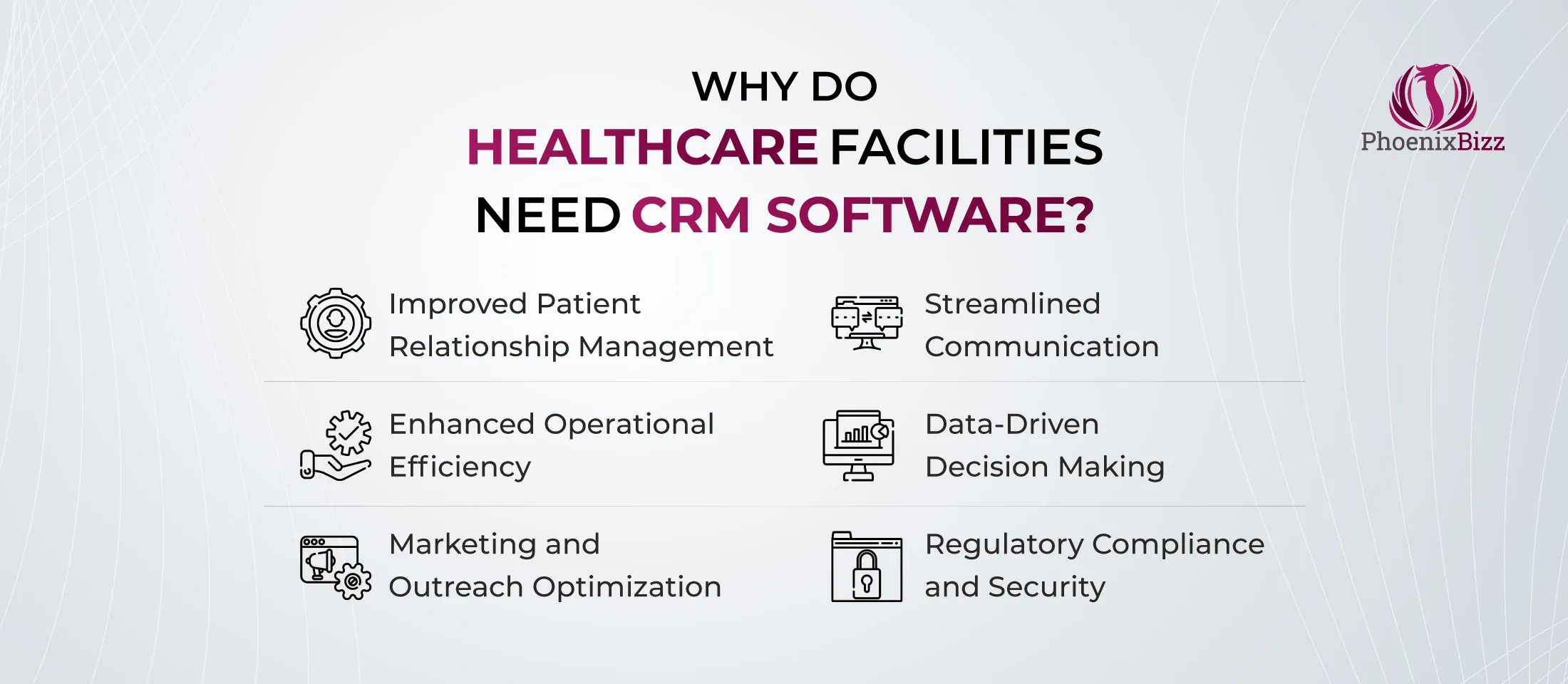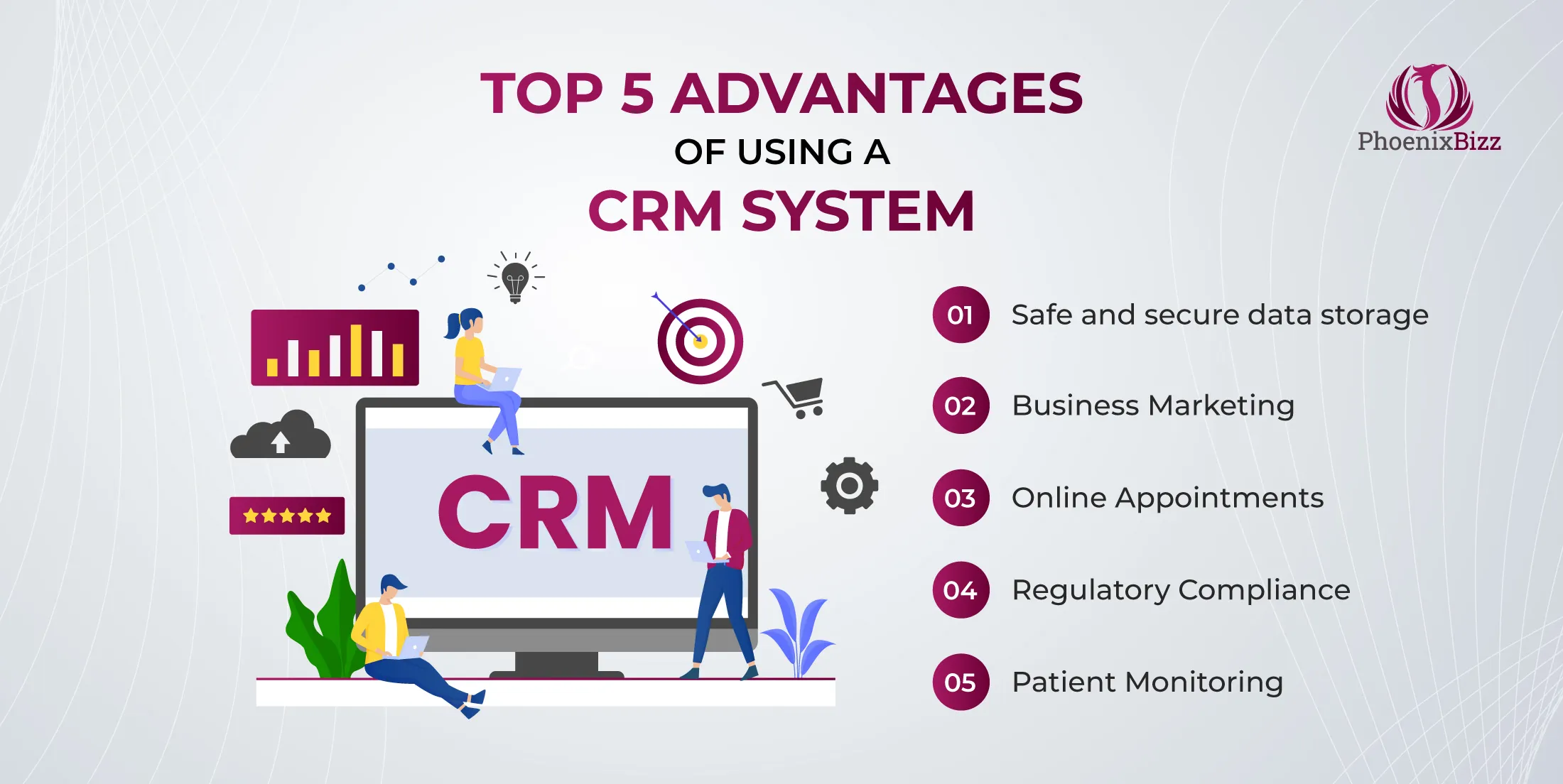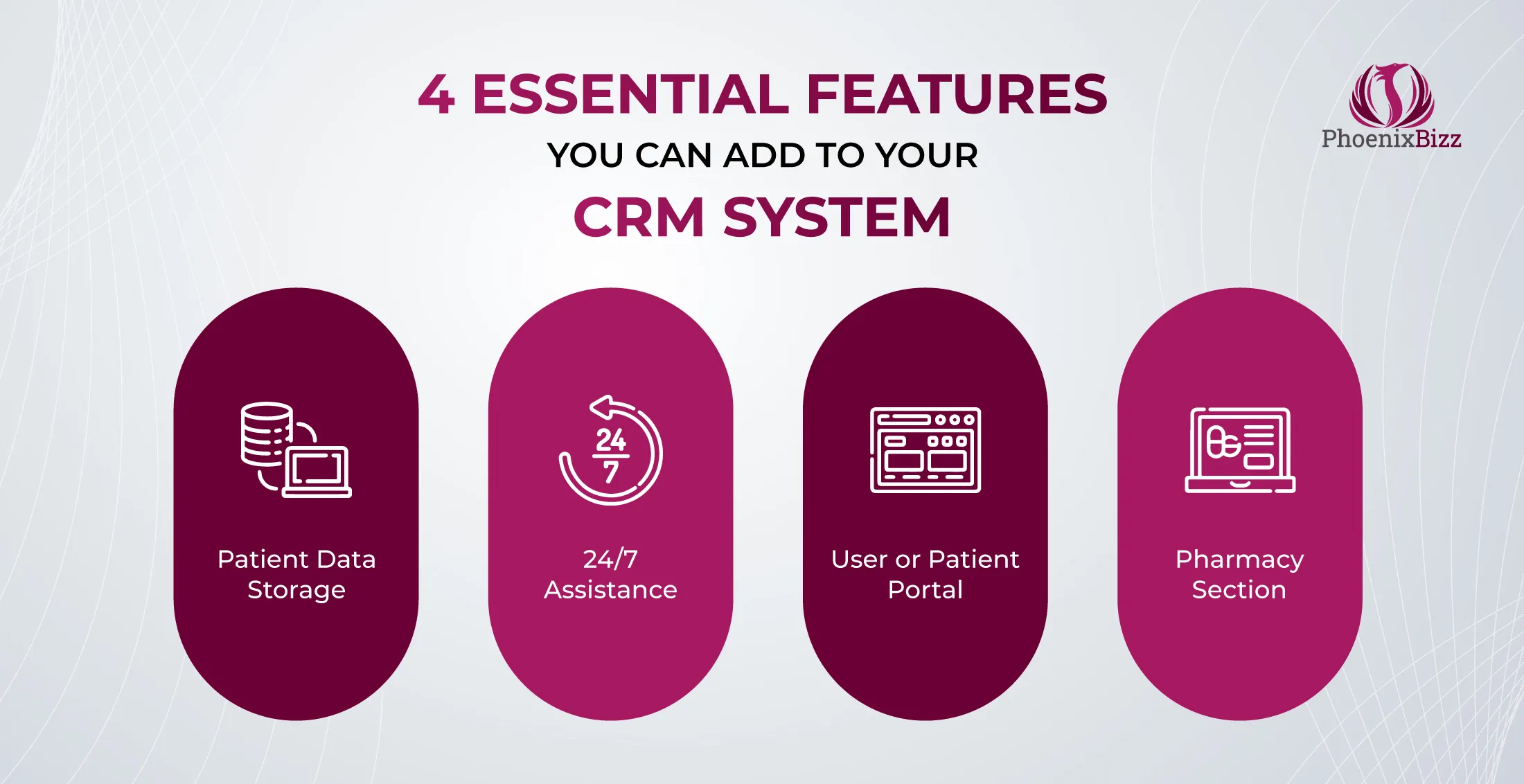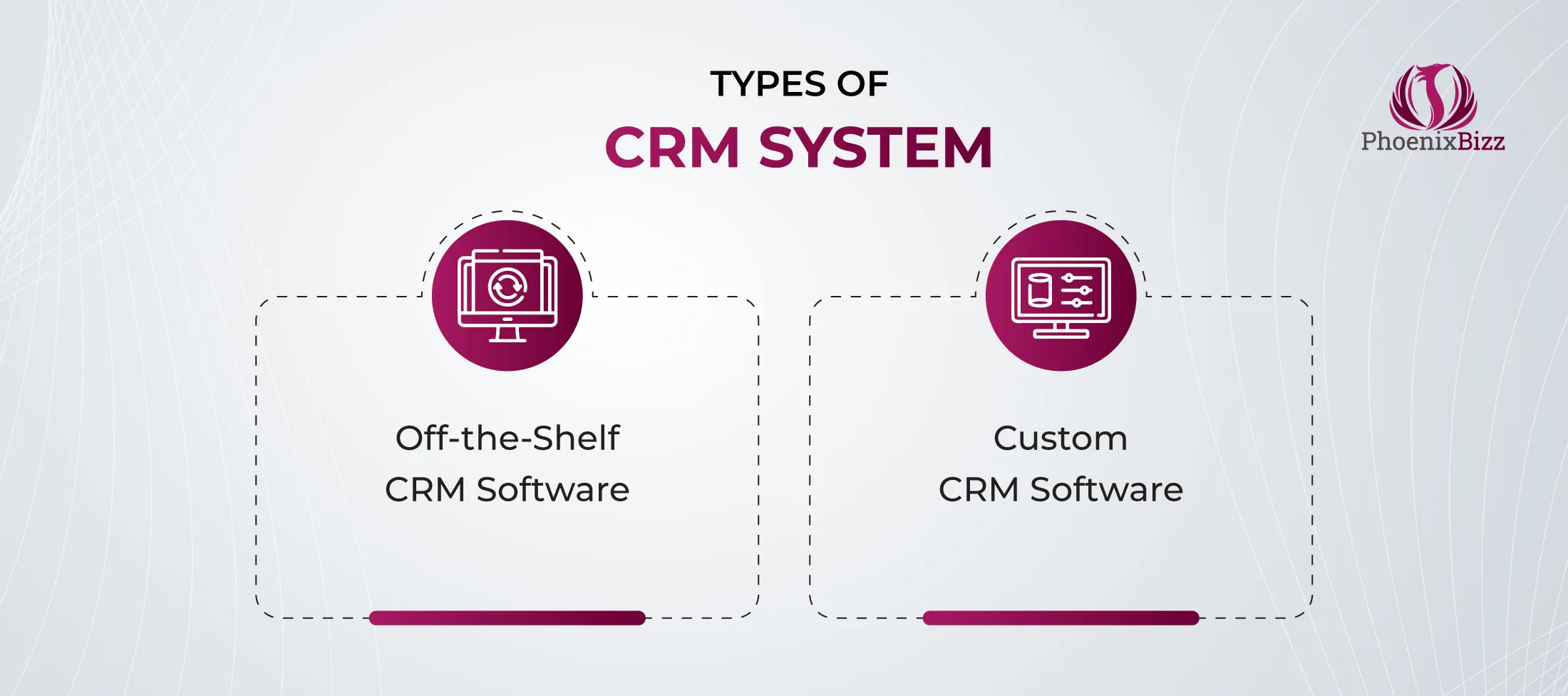January 31, 2024
By: PhoenixBizz Staff Writer
PhoenixBizz is a division of Sofvue, LLC
Printed with permission of Data Titan and Sofvue LLC
In today's technologically advanced era, the role of technology in streamlining business operations across different market sectors is simply undeniable. In the healthcare industry, Customer Relationship Management (CRM) software systems are now gaining significant traction. That said, CRM software not only automates tasks but also plays a crucial role in retaining customers. Healthcare facilities are increasingly adding digital services to enhance patient satisfaction. Additionally, CRM software is instrumental in automating sales and marketing activities.
If you are considering the development of a CRM software tailored for your healthcare facility, then you have come to the right place. This beginners guide offers everything you need to know, from the fundamental architecture of a healthcare CRM to its key features and advantages your application or mobile app will require to launch.
What is CRM Software in Healthcare?
Customer Relationship Management (CRM) software in healthcare is engineered to streamline functions such as patient intake, record management, appointment scheduling, and laboratory services. The primary objective behind creating a CRM system is to facilitate medical staff operations and improve service delivery to patients, ensuring their full satisfaction. A CRM software can help improve patient care in many areas. Here’s a few:
✅ Enhanced Communications
✅ Improved Healthcare Coordination
✅ Better Personalized Care
✅ Ease of Access to Information
✅ Reduced Wait Times for Patients
✅ Better Patient Engagement
✅ Better Patient Well Being
✅ Superior Appointment Management Tools
Why do healthcare facilities need CRM software?
The purpose of CRM software is to streamline your business processes and workflow beyond what your facility offers today. Given that patients need significant care, adopting current technologies allows you to offer timely and enhanced assistance. A CRM software offers some of the following benefits:

Improved Patient Relationship Management
CRM software enables healthcare facilities to maintain comprehensive patient profiles, including medical history, preferences, and past interactions. This leads to more personalized care and stronger patient-provider relationships.
Streamlined Communication
A CRM system can automate and organize communication with patients, including appointment reminders, follow-up messages, and health tips, ensuring consistent and effective communication.
Enhanced Operational Efficiency
By automating administrative tasks like appointment scheduling, patient follow-ups, and record-keeping, CRM software frees up healthcare staff to focus more on patient care rather than administrative duties.
Data-Driven Decision Making
CRM systems provide valuable insights into patient behaviors, preferences, and needs through data analysis. This information can guide healthcare facilities in making informed decisions about services, treatments, and business strategies.
Marketing and Outreach Optimization
CRM tools can assist in targeted marketing efforts, helping healthcare facilities to reach potential patients more effectively and to keep existing patients engaged with relevant health information and services.
Regulatory Compliance and Security
Modern CRM systems are designed to comply with healthcare regulations like HIPAA, HITECH, GDPR, FTC and COPPA, to name a few., ensuring patient data is handled securely and confidentially, which is critical in the healthcare sector.
Must Read: How to Build a Healthcare App: A Complete Guide for 2024
Advantages of using a CRM system
Apart from increasing the work speed and delivering enhanced customer experience, a Customer Relationship Management system delivers several other benefits. Here are a few benefits gained when deploying a CRM for your medical practice:

1. Safe and secure data storage
Protecting your patients' data is crucial, and it's essential to ensure its confidentiality. Traditional methods of storing data, like paper files, are prone to misplacement and damage. However, digitizing these records through CRM software significantly reduces the risks of data loss and cyber threats. At PhoenixBizz, we design and develop CRM software systems that offer robust protection and encryption, greatly reducing the chances of data theft or accidental damage.
2. Business Marketing
As mentioned earlier, CRM software can deliver deep insights into your facilities and customer behavior. You can better understand your patients and their requirements, which can further improve marketing strategies. Here is what you can do:
✅ Provide personalized offers and free checkups to regular patients.
✅ Send reminders and alerts to patients for their upcoming follow-ups and lab tests.
✅ Promote doctors and specialists to acquire more patients.
✅ Connect parts of the system to your healthcare facility's social media pages.
3. Online Appointments
Streamlining your staff's workload is achievable by enabling patients to schedule appointments online. This approach eliminates the need for patients to arrive at the hospital hours in advance. With the convenience of online booking, patients can arrive precisely at their allotted time, reducing staff workload and preventing overcrowding in the hospital premises.
4. Regulatory Compliance
In the healthcare sector, adherence to safety regulations such as HIPAA, FDA, and ADA are imperative. Additionally, each state may have its own set of laws. To ensure your business operates within legal boundaries and avoids legal complications, it's crucial to comply with these regulations. A CRM system, especially one developed by a specialized healthcare software development company, can meet these compliance standards, offering enhanced security.
5. Patient Monitoring
CRM software significantly aids healthcare professionals in monitoring patients more effectively. The software facilitates a range of services from online consultations to emergency care, ensuring timely patient oversight. It also allows doctors to quickly access a patient’s past medical records, providing valuable insights into their medical history for better-informed care.
Essential features you can add to your CRM Software
Choosing the right features for your software is crucial, and it's particularly important to ensure these features resonate with your target audience. Before finalizing the specifications of your CRM software, it's wise to conduct a thorough analysis of your target audience's needs and preferences. To assist you in this process, here's a compilation of CRM software features that are highly regarded in the healthcare sector:

1. Patient Data Storage
This feature is essential for managing the health records of patients who visit the facility multiple times. Efficient patient data storage enables quick access to a patient's previous health records, saving time and reducing the reliance on cumbersome paper files.
2. 24/7 Assistance
A key feature of healthcare CRM software is the ability to offer round-the-clock online assistance. This is akin to emergency services but in a digital format. Whether it's for urgent online appointments, report inquiries, or billing issues, a CRM system can provide these services at the healthcare administrator’s fingertips.
3. User or Patient Portal
A comprehensive patient portal is a must in healthcare CRM software. It should house critical information such as personal details, health records, medical history, upcoming appointments, and more. This portal serves as a central repository for patients, who can access their information easily by logging into the system.
4. Pharmacy Section
Integrating a pharmacy section can significantly enhance the value of your healthcare facility. This feature can facilitate the home delivery of medicines, offering great convenience to patients who are unable to travel to the hospital or pharmacy.
Types of CRM systems
The choice of the system you develop indeed hinges on the scale of your business and your specific requirements. In the spectrum of CRM software and mobile app development, software development companies typically provide two service types: off-the-shelf and custom. Let's consider both:

1. Off-the-Shelf CRM Software
This type of CRM solution is designed to cater to a wide range of businesses with standard features that address common needs in customer relationship management. The primary advantages of off-the-shelf CRM software include immediate deployment, lower upfront costs, and proven reliability, as these systems have been tested across various business scenarios. However, the downside is the lack of customization. It might not fit perfectly with your unique business processes or specific industry requirements.
2. Custom CRM Software
Custom CRM software is designed specifically for your business. It's built from the ground up, focusing on what your business does, what you want to achieve, and the challenges you face. This method makes sure the software fits your business goals perfectly. It can grow with your business and change as your needs do. Custom CRM systems can also provide you with an advantage over competitors, but these systems usually cost more and take longer to develop than off-the-shelf solutions.
As the business owner or operations manager of a healthcare facility, your decision between these two types of approaches will depend on factors like budget, time constraints, the complexity of your business processes, and the degree of customization you want. About 70% of the time, off-the-shelf solutions are perfect and serve the majority; however, one size does not fit all. Therefore, each type of CRM has its merits and limitations, and the choice should align with your long-term business strategy and operational needs.
Additional questions on CRM healthcare software
1. Does PhoenixBizz provide cloud-based software development services?
Yes, the staff at PhoenixBizz is well versed in providing different software development solutions. Our cloud-based systems are highly efficient and developed using current, relevant and well-thought-out technologies.
2. What are the cost variables associated with developing CRM software for healthcare?
The software should align with the business model adopted by the healthcare provider. The complete cost varies as it is based on the type of CRM software you want, the level of customization, business requirements, specifications, delivery dates, etc. The list goes on. To learn more or to request a call with one of our technical architects or project managers, feel free to contact us.
3. How can CRM software increase my healthcare clinic’s sales?
Implementing CRM software in a medical facility can significantly enhance a healthcare facility’s sales through various strategic and operational improvements. Some of these include:
Streamlined Patient Onboarding: CRM software can simplify and speed up the patient onboarding process. By efficiently managing patient data and history, the clinic can reduce administrative burdens, leading to more patient appointments and increased revenue.
Targeted Marketing Campaigns: CRM systems enable clinics to analyze patient data to identify trends and preferences. This information can be used to create targeted marketing campaigns, attracting new patients and retaining existing ones, ultimately boosting sales.
Improved Patient Retention: By facilitating better communication and follow-up care, CRM software helps in building stronger relationships with patients. Satisfied patients are more likely to return and use more services, contributing to increased sales.
Enhanced Service Offerings: CRM data can provide insights into the most sought-after services or identify gaps in current offerings. This allows the clinic to adjust its services to meet patient demands more effectively, potentially leading to new revenue streams.
Efficient Appointment Scheduling: CRM tools can optimize appointment scheduling, reducing no-shows and wait times while maximizing the clinic's capacity to see patients. This efficiency can lead to a higher turnover of patients and, consequently, increased sales.
Referral Management: A CRM system can track referrals and their sources, enabling the clinic to focus on building relationships with key referrers. This can lead to an increase in patient numbers and sales.
Feedback and Reputation Management: By managing and responding to patient feedback effectively, a clinic can improve its reputation and attract more patients. Positive reviews and ratings, often influenced by the quality of service and communication, can be a powerful tool for sales growth.
Also Read: A Guide to Developing a Hospital Health Management System
Wrapping up
At PhoenixBizz, we are one of the leading software development companies serving the Arizona marketplace. A division of Sofvue LLC, we offer two decades' experience in developing world-class software solutions across numerous market segments, including healthcare.
Led by our Senior Software Architect and our Director of Operations, our programmers, engineers, project managers and designers work tirelessly on big and small projects alike, and we convert them from ideas on paper to working applications for browsers, mobile, Apple and Google. We have served hundreds of clients across the country, and from New York City to Los Angeles, California, and all points in-between.
Whether you want a customized CRM system for a SaaS, Apple iPhone or Google Android, we make it happen. Our software systems are responsive, optimized, and developed using the latest technologies. Give us a call at 623-845-2747 for more information.
RE: 11709
Citations
https://dynamics.microsoft.com/en-in/crm/what-is-crm/
https://www.hubspot.com/products/crm/what-is
https://webmdignite.com/faq/what-is-a-healthcare-crm









